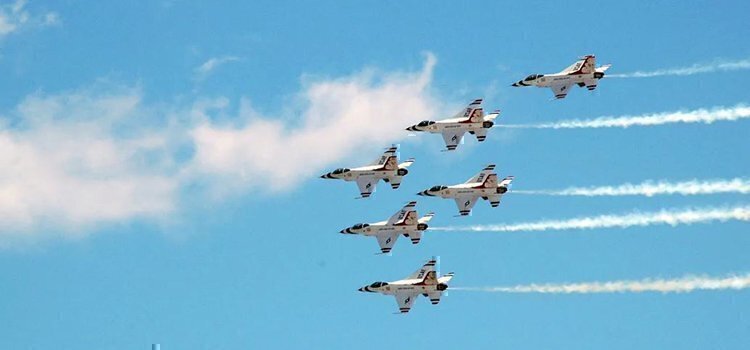The Air Force is inching closer to fragmenting the Line of Air Force category into six new, more specific, categories—including one apparently intended for “space operations.” The change to the Line of Air Force categories would affect an estimated 87% of its current officers.
USAF Secretary Heather Wilson
The current draft of the categorical changes was previewed by Air Force Secretary Heather Wilson. Wilson emphasized that while the changes are not yet finalized, the 6 new tentative Line Air Force categories are:
- Nuclear and missile operations
- Air operations and special warfare
- Information warfare
- Combat support
- Force modernization (including acquisition and R&D)
- Space operations
Wilson said that the decision to splinter the Line of Air Force into specific categories may only be confined to middle officer ranks.
According to Wilson, the final decision is expected to be set in stone by October.
The proposed re-haul would give a majority of officers a more specific category to adhere to. The current system in place has specified categories for chaplains, lawyers, and doctors—but officers are a part of a much more sweeping, generic category.
Lt. Gen. Brian Kelly
According to Air Force personnel chief Lt. Gen. Brian Kelly, this change could disadvantage the upward mobility of some officers. Kelly referenced the need for officers to vary their skillsets so that they are competitive when job openings or promotions become available.
“But if, for example, acquisition officers had their own competitive category, they could stay longer at a base to provide more continuity within their program. Moreover, the lack of command opportunities that acquisition officers typically face would be less likely to hurt their promotion chances,” Kelly continued, “But more categories would give different career fields the opportunity to grow officers in their own unique ways, providing the best fit for them.”
This could mean big changes for officers—like those pictured here graduating from USAF OTS on Maxwell Air Force Base, Alabama
(Airman First Class Matthew Markivee)
Wilson reiterated that the umbrella system of categorizing officers has led to some unequal footing in terms of experience levels in certain fields. Wilson used the example of colonels and lieutenant colonels in the Air Force, and how there is essentially a reliance on chance that a qualified candidate will fall into the position.
“And we may not have enough colonels in cyber, or lieutenant colonels in logistics, or somebody that’s coming along who eventually is being groomed to be the leader of one of our laboratories,” Wilson continued, “Not everybody’s career is going to look like everybody else’s — and it doesn’t have to.”
Wilson conceded that a change of this magnitude, like many others, will need support, “So we’re going to take it out to the force, get a lot of input, hope people post on it, blog on it, comment on it, have town hall meetings on it.”
This article originally appeared on We Are The Mighty
More From We Are The Mighty
5 Reasons Why Troops Stick Together After the Military
4 Reasons Why Showering On Deployment is Disgusting
READ NEXT
7 Gym Essentials to Build an At-Home Gym
6 Veteran Influencers to Follow into 2019





